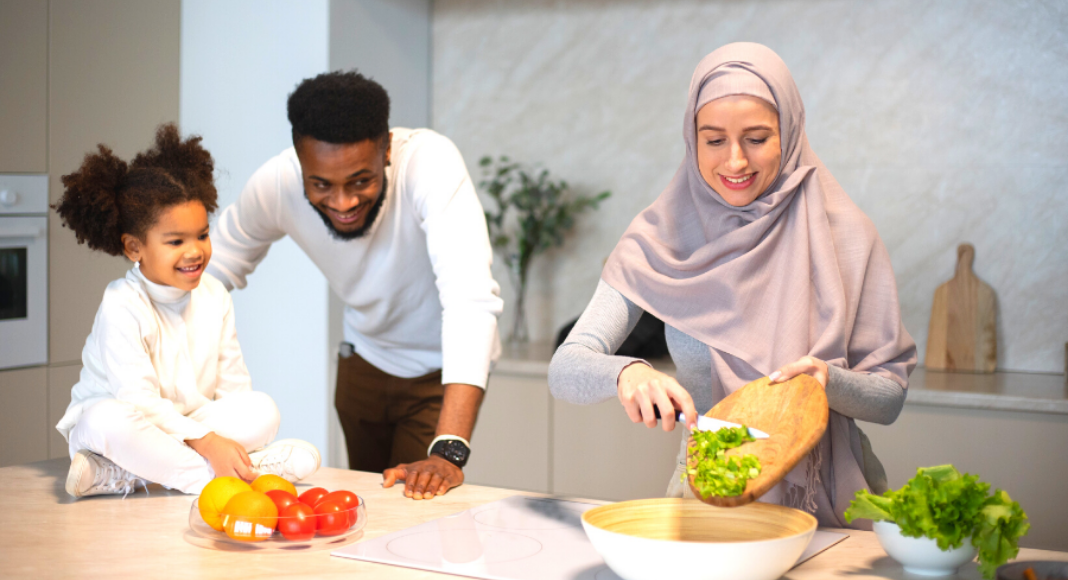There was a quote shared rapidly among Facebook acquaintances who embrace gentle parenting. In general, my husband and I agreed with what it was saying. We could have left it at that. Especially since we should know by now that nuanced conversations seldom happen on Facebook. And yet my valiant, always-ready-to-debate husband dove in. As should have been expected, it did not go well. Comments flew back and forth for some time, and then we were told,
“Forcing your kid to eat vegetables is child abuse. Period.”
Whoa. That escalated.
How did we get here? The quote that started it all:
“Adults don’t eat foods that they don’t like but for some reason, we’re supposed to hold kids to a higher standard. Just like when we tell them they can’t have bad moods, off days, or decide who can hug and kiss them. People need to stop confusing spoiling children with respecting them as fellow people.”
There is so much in here we agreed with.
- Kids can and should be allowed to have bad moods.
- Kids can and should be allowed to have off days.
- Kids can and should be allowed to decide who hugs and kisses them.
But in our household, apparently, we are abusing our children because we expect them to eat kale or other plants at every meal.

The more we tried to explain how this works really well and seems to be a healthy choice for us, the more the dialogue devolved. I have to assume there were key details being missed. Perhaps Spencer wasn’t clear, or perhaps the readers were reading selectively and wanted to be outraged (we often want to be outraged on the internet). I am going to take this opportunity to try to explain our approach better.
First of all, in our household, adults do eat foods they don’t like. All the time.
To be polite at a family dinner. To avoid going to the store even though all we have left is soup we’re not in the mood for. To avoid making food for ourselves even though our spouse made Brussels sprouts.
Second of all, this has had tangible, positive impacts on my life. For a while, I hated kale and wouldn’t touch it. But I fell in love with a vegetarian who likes to cook (and completely avoids sugar). He would sauté big batches of kale, make it an integral part of the meal, and gently remind me that it is a food packed with vitamins and nutrients. And since I’m not usually one to go make a whole different meal if there is something in front of me, I would choke it down. At first just little bits. Then as a side dish. Then as main ingredients.
Guess what? I still don’t like kale, but I tolerate it. Sometimes I even cook it for myself because I’ve found dishes it goes well in. I would never have reached this relationship with kale without someone encouraging me to eat it, reminding me that it will help my body grow strong, and sometimes even leaving me with few options to eat other than the kale.
So when I say that I force my children to eat their plants, yes, I am holding them to the same standard I hold myself.
The idea that this constitutes the label “abuse” seems dismissive of more traumatic experiences.
This extreme extrapolation could also be a reason some generations struggle to take the gentle parenting movement seriously.
In my opinion, gentle parenting can be achieved while still enforcing basic expectations of health and safety. In the same way I will not let my child run in a parking lot, I will not allow them to eat nothing but bread. The key to gentle parenting is in how you enforce your boundaries.
We don’t restrain our children. We don’t physically push food into their mouths. We also don’t say, “because I said so,” or make irrelevant comparisons to starving children in another country.
We do, however, explain that food is there to nurture their bodies and help them grow strong. We explain that certain foods have more vitamins and nutrients than other foods. We explain that some foods taste really good, but don’t give your body as many vitamins. We explain that eating foods only because they taste good is really fun, but moderation is important. And at each meal, we put forward basic expectations of what is healthy for their body to consume.
Yes, this means we sometimes negotiate “five bites of this, six bites of that.” We also allow our children to tell us when they are full. We sometimes challenge them when they claim to be full. Some nights, we let our children leave the table without eating anything.
No. We won’t have candy if we haven’t eaten nutritious food.
Again, this is the same standard we hold ourselves to. If I know we’re eating pizza for dinner, I often eat a big salad for lunch. If I know I ate a lot of candy one day, I won’t have any the next day to get back in balance. It’s not about weight, it’s not about calories, it’s about feeling good because my body is getting a well-balanced variety of foods for nourishment.
Do I think our plan is perfect? No. We have our share of dinners full of negotiation and frustration and raise our voices and generally fail at gentle parenting. Do I think every family should follow our plan? No. Do what works for you and aligns with your values. Do I break my own rules sometimes? Yup. Birthday cake is birthday cake and will be consumed at a birthday party, no negotiating required. Would my children eat nothing but candy if I let them? Of course, and maybe they’d realize how terrible it makes them feel and learn their lesson that way. But when I ask my kids which plants they want with dinner, do my children request kale and broccoli? Yes.
Let’s not call that abuse.












